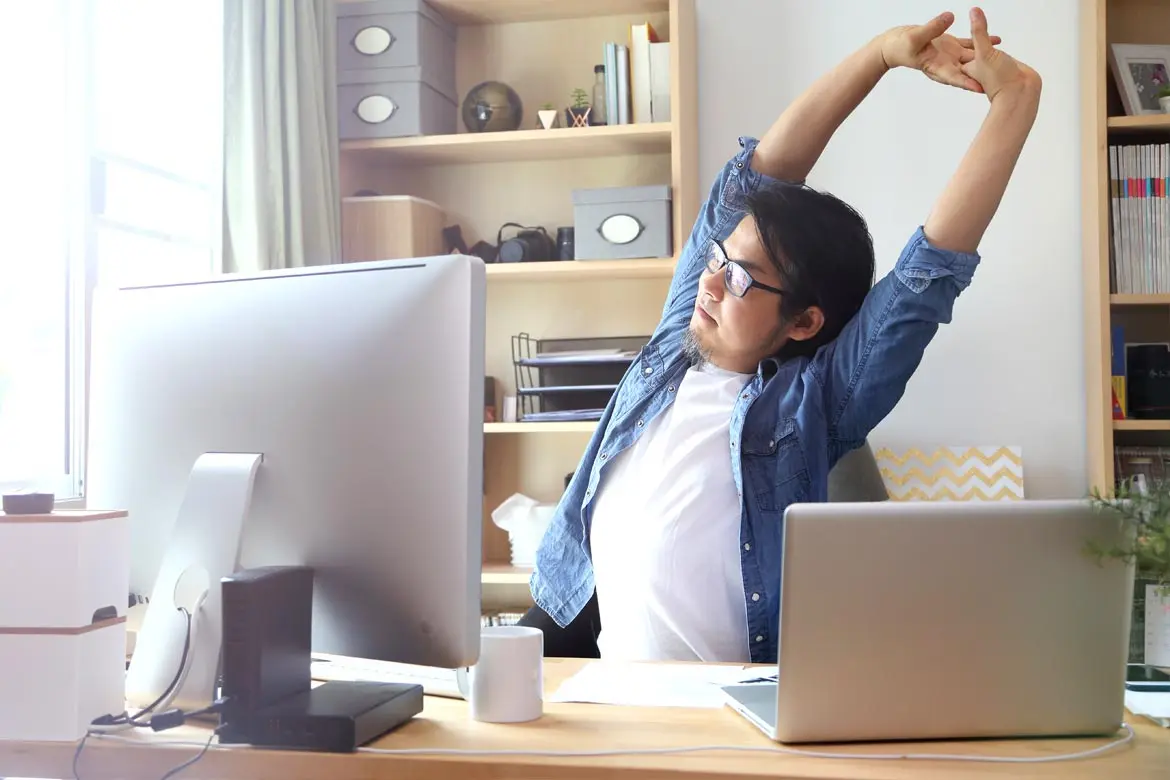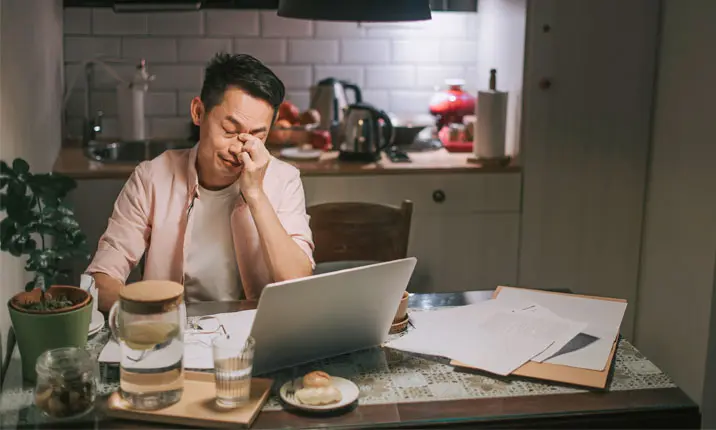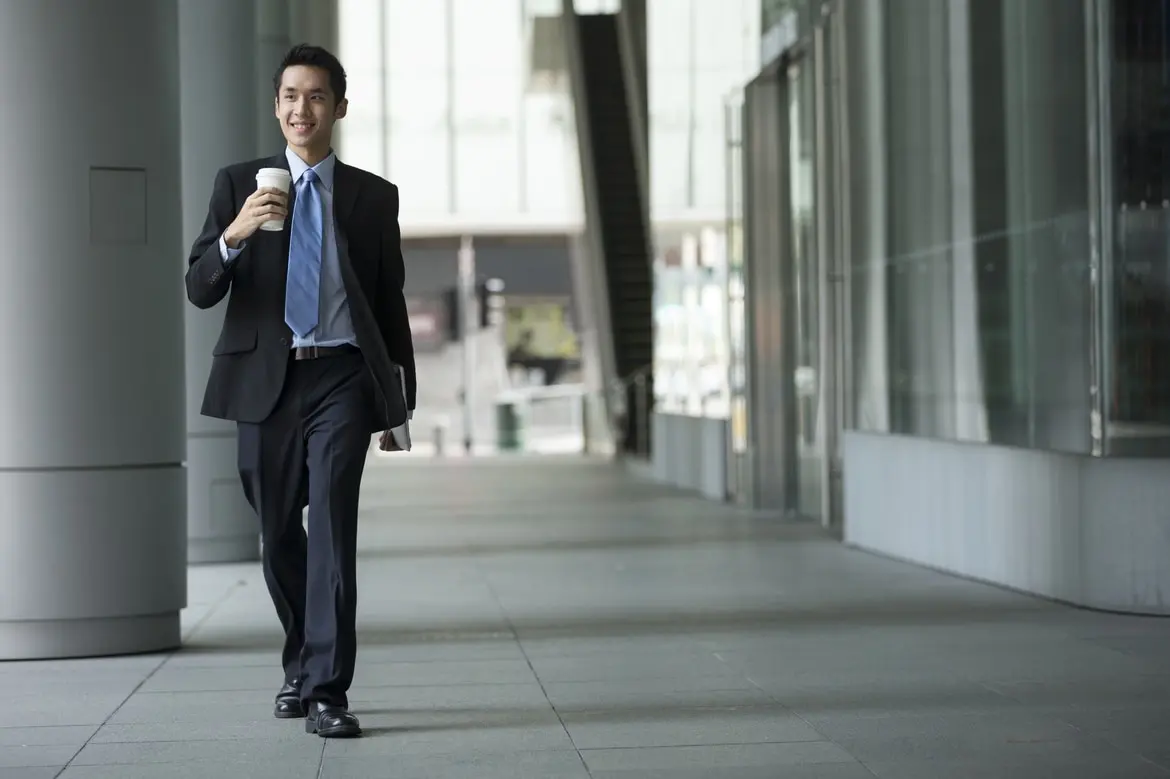If you’re a night owl, you know this drill only too well. You may spend your Friday and Saturday nights staying up till the wee hours of the night, and sleeping in the following morning. But following the weekend’s shenanigans, you might find it hard to sleep earlier on Sunday night, and miss out on clocking in that full 8 hours of sleep. Come Monday morning, you wake up groggy from fitful sleep, just in time for that 9 AM meeting.
Sound familiar? This pattern is a vicious cycle of a weekday sleep debt that you compensate for over the brief weekend, paving the way for ‘social jetlag’. This phenomenon describes the discrepancy in one’s sleep-wake patterns between the weekdays and weekend, or between your social and biological time, which can cause you to experience effects similar to that of jet lag.
Unsurprisingly, if you’re living in a way that is out of sync with your natural sleep-wake patterns, you could be exposing yourself to a host of serious health effects, such as short sleep duration, increased metabolic disorders, heart problems, mood disorders, reduced life expectancy and increased risk of cancer.
Social jetlag used to be something predominantly night owls experienced. However, with the pandemic, more people tend to be sleeping later, experience disrupted sleep or even insomnia. These changes affect their circadian rhythms – the natural, internal process that regulates your daily sleep-wake cycle. The big question is, have more of us unwittingly developed a different sleep-wake pattern on the weekends compared to the weekdays, exposing us to social jetlag and its risks?
The Link between Social Jetlag and COVID-19
March 2022 marks two years into the pandemic. In this time, most of us would have adjusted to working from home to some degree. But this does not always come naturally, with some new habits possibly detrimental to our health and well-being. Let’s look into a couple of them:
Working longer hours – leading to reduced and / or disrupted sleep
A study by The Straits Times found that 1 in 2 people in Singapore have put in extra hours at work since the pandemic started, leading to heightened stress and anxiety. The lack of a clear delineation between work and play while working from home is one cause – if your workstation lies in your bedroom, you may find it especially hard to “switch off”. Instead, you may be tempted to send that one last email before bed, or to power through that presentation at night just to check it off your to-do list. You may also face undue pressure to be ‘always on’, and respond to work-related messages outside of stipulated work hours in fear of reprisal. Without any face-to-face interaction with your colleagues, you may feel isolated during work, and coupled with exhaustion from working constantly, you could face burnout.
These issues are very real, and faced by many while working from home. As a result of overworking, you may be falling asleep later, or sleeping less at night due to stress. This affects your circadian rhythm and creates a later sleep-wake routine than what you have naturally.
Screen-time exposure and delayed sleep
In a survey conducted between February and March of 2021, 73% of Singaporeans polled are spending more time on screens – unsurprising as many are already pulling extra hours working from home. If you choose to spend your leisure time on your screen as well, especially during the hour before bedtime, your sleep could suffer. The light from screens can affect your brain’s melatonin production, which delays the onset of sleep. This light could also signal to your brain that it is still daytime, which fuels insomnia and sleep deprivation. As such, you could be delaying your circadian rhythm and facing poorer sleep quality if you are adopting such a lifestyle on weeknights, only to have to play ‘catch-up’ on the weekends.
Effects of Social Jetlag
Besides feeling constantly tired, social jetlag has many other impacts on our health, some of which could lead to more severe consequences in the long term.
Some effects include:
- Intense morning grogginess
- Increased daytime sleepiness (similar to feeling jetlagged)
- Chronic sleep deprivation, which comes with health risks
- Difficulty concentrating or functioning at usual levels
- Decrease in productivity
- Increased risk of obesity and diabetes
- Depression and mood changes
How to Beat Social Jetlag
You can beat social jetlag by making a couple of minor changes to your lifestyle, with the aim of getting your circadian rhythm back on track. Below are some lifestyle changes you can consider:
Set clear boundaries between work and play
Stick to a routine, just like when you were working in an office. You can wake up early just like you used to do, and use the time saved on travelling to have breakfast, do some reading, exercise or even meditate. When it’s time to clock-off, have an activity planned outside your home, or in a different room than the one you were working in so you are able to make the switch from work to play more intentionally.
Reduce your screen time before bedtime
Start winding down about an hour before you sleep. During this time, you can put aside your electronics. Instead, read a book, meditate, journal, or simply sit down to chat with a loved one. This will ensure the glare from a screen does not interfere with the production of melatonin in your brain, which helps you fall asleep.
Take steps to de-stress
Overworking, stress and lack of sleep can take a toll on your mental and physical health. To de-stress, try relaxation techniques such as meditation, set time aside to engage in your hobbies, or indulge in a new fun activity.
Get moving
Being at home all day also means that you don’t move as much – there’s no commute to work, and you’re likely to not have to walk to the nearest food centre on your lunch break. A sedentary lifestyle can also contribute to a lack of energy, so do start exercising – just don’t work out too close to bedtime as that can make it hard to fall and stay asleep.
Stay Safe, and Stay Well Too
Lifestyle changes are inevitable amidst this major global shift, and we’ll need to learn to not just live with it, but live better. We should aim to get quality and sufficient sleep every night, and an important way to do that is to keep your sleep schedules consistent during both weekdays and weekends to ward off any ill effects of social jetlag. After all, taking care of your health, as well as those of your loved ones should be a priority. Should you feel unwell, whether physically or mentally, please do not hesitate to reach out and seek professional help.














